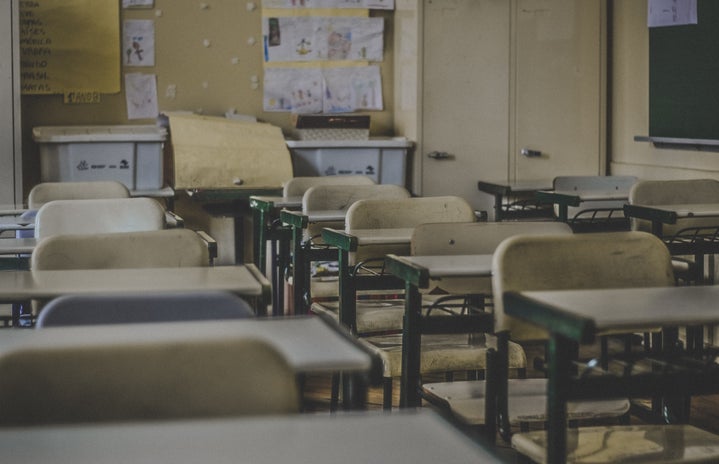-Shreyashi Paul
We all have heard of ragging. Often it is shown in a comical tone in movies where a popular, cool student at college is seen abusing or torturing another ‘inferior’, ‘uncool’ student. Some universities have now instituted strict anti-ragging policies, which has evolved over the past decades. The point is, we are aware that ragging takes place. How often do we talk about ‘school violence’ and the lifelong impact it can have on someone?
What is school violence
School violence is any form of violence, be it physical, psychological, sexual and bullying, including cyberbullying. Anyone can be a perpetrator- a fellow classmate, a senior, or a teacher and it can take place in any setting, be it inside the classroom, on the field during breaktime, inside the bus while going back home, at a school trip or an event; literally anywhere.
The Crime and Safety Surveys Program that collects and reports data on crime, violence, and safety in U.S. elementary and secondary schools recorded that during the 2019–20 school year,77 percent of public schools had various forms of crime taking place, amounting to 1.4 million incidents. 29 incidents took per 1000 students and it is a given that not all incidents have been recorded.
IMPACT
Our childhood experiences have an influence on our adulthood, our personality and our interactions with the social world. It is a Freudian concept that personality develops during childhood and has an impact on our behavior. Why someone may struggle in their work setting, or in relationships in life has a lot to do with how their earlier stages of development went like. Violence in school may cause various kinds of psychological distress, be it depression or anxiety or even emotional distress, ranging from anger to self-esteem issues. Thus, it is of paramount importance that a child grows up in a healthy environment that can nurture and shape them well. Everyone deserves it.
Physical or corporal punishment can lead to major physical and mental health issues. Often a victim of school violence may no longer believe in goodness and begin to take up immoral steps as a defense mechanism. They may grow up to have lack of empathy, poor social skills, tendency to indulge in aggressive behavior and so on.
Moreover, school violence also has a lot of impact on the parents and friends of the victim who are the first-hand witnesses.
Preventive measures
If you and I look back at our schooldays, I am sure each one of us can recall various instances that must have caused tension between peers; be it petty fights, envy over marks, physical fights in the sports ground to prove one’s strength, arguments over a love-interest, favoritism shown my teachers for one child over the other and other countless reasons. There can be constructive, healthy arguments but when it crosses a certain line of integrity, what action can we take?
Often times, a victim or even a witness is not in the position to speak up for what is right, even when they direly want to. The bully could be a popular, rich and dominating kid and others have to silently face the wrath. But being voiceless in such situations may also give a lot of power to the perpetrators.
First and foremost, it is important to report such issues to the higher authorities in school. Secondly, taking help from a senior in position, a trustworthy teacher, friend or support staff can always be beneficial. Communicating is key and thus, thirdly, a victim should try and speak to their parents and guardians back at home who can make a huge difference. It may be tough for a victim undergoing trauma to take all the actions by themselves and thus, if you are a witness or a friend, you can try to lend a hand. Being an avid listener, understanding the situation with empathy, following the pattern of abuse of the bully and then reporting all of this is necessary.
Above all, school violence should be extracted away from its roots and the biggest responsibility lies with the school. To encourage more moral education classes from primary school that focusses on character development and educates young minds on the importance of honesty, kindness, mutual-respect and dignity is salient. UNESCO’s handbook on School-Based Violence Prevention states that taking a ‘whole-school approach’ towards this is needed. This approach is better than focusing on one target group. “This approach works towards making sure that the whole school shares the same vision towards reducing violence, and that the school head, teachers, administrative staff, students, parents and the community work together towards this shared goal.”


